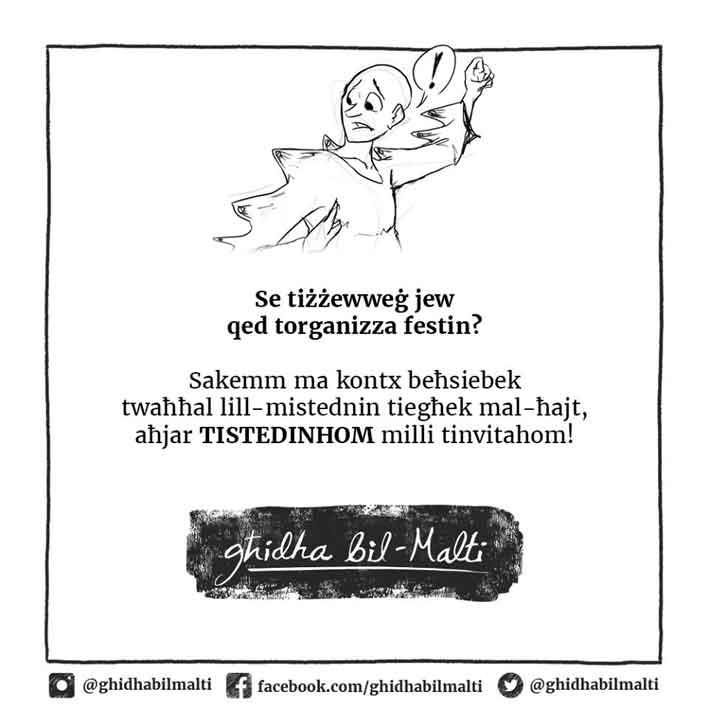Reuben Degiorgio and his sister Audrienne are passionate about the Maltese language. Reuben, in particular, grew even fonder of the Maltese language when he started studying to become a translator, a profession he now practices in Brussels.
Audrienne has more of a talent in the art of drawing and is an established concept artist based in Malta. Bound by their wish to spread knowledge about the Maltese language, they created Ghidha bil-Malti a Facebook page which intends to create awareness on the proper use of Maltese.
One of their most recent posts that shed some light on the language spoken by the children today, has stirred up some controversy and many shared it on their timelines sympathising with what was posted.
“Illum morna l-beach bil-car nagħmlu splash fil-water. Qgħadt nagħmel dive u nara l-fishies”.

“This is no one way to speak. Use one language or the other. But don’t mash both,” Reuben told The Malta Independent.
He explained that his love for the Maltese language started from a young age but flourished when he started his studies. “You start discovering where certain words come from and how they can be used. It is wildly interesting,” he said.
The Degiorgios decided to use Facebook to pass on their message as it is the most efficient way of spreading the word. Reuben takes care of the research and his sister Audrienne handles the illustrations.
“We are not here to teach. I have no authority to do so. All I want to do is share my ideas and knowledge.”
The project is still in its infancy. The Facebook page is only a couple of months old and the subscriptions on the page are slowly growing.
“Our posts are aimed to raise awareness, by pulling legs or by being very serious,” he said while commenting on a post criticising how parents teach their children to speak mixed English and Maltese.

“It is a known fact that ideally, you don’t mix up the languages. Our children are able to absorb more than one language, but they have to be taught the languages separately. We tend to change the nouns or verbs in a sentence, thinking we’re actually helping our child bilingualism. But this is not how bilingualism works.”
But Reuben is not all pessimistic about the Maltese language and appreciates how local artists prefer to use their native language instead of English. Bands like Brodu, Brikkuni and Plato’s Dream Machine, to mention just a few, have all managed to champion the Maltese language in their melodic art.
The page spreads knowledge on how the describe very particular things, from the different phases of the moon and the parts which make up Maltese feast pavilions.

Reuben explained that his love for the Maltese language grew even more when he left Malta some seven years ago. “I do appreciate my mother language more. Sometimes I even miss speaking in non-technical Maltese. Here at the European Union, we have to translate very technical documents and sometimes I tend to use this language on a daily basis.
“It is through small efforts that we can actually safeguard our mother tongue. Let’s say it’s Christmas time. Most of us feel more comfortable saying Happy Christmas instead of il-Miled it-Tajjeb. It is of course understandable, and no one will punish you for saying it in English. But our message here is that if there is a way of saying in Maltese, use your native language first.”
Reuben might sound like a traditional language nazi, but he also acknowledges that it is in the nature of every language to evolve and merge others into it. “I know some Spanish friends who refer to the roof as el rufo. The Spanish language, obviously, has a word for roof (which is techo) but for some reason there are those who prefer to say it otherwise.”
Għidha bil-Malti can be found on Facebook, Instagram and Twitter.